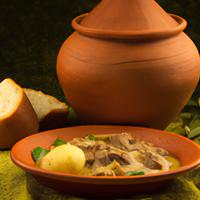
1 serving (100 grams) contains 0 calories, 0.0 grams of protein, 0.0 grams of fat, and 0.0 grams of carbohydrates.

Log this food in SnapCalorie

Nutrition Information
Calories |
0 | ||
|---|---|---|---|
% Daily Value* |
|||
| Total Fat | 0 g | 0% | |
| Saturated Fat | 0 g | 0% | |
| Polyunsaturated Fat | 0 g | ||
| Cholesterol | 0 mg | 0% | |
| Sodium | 0 mg | 0% | |
| Total Carbohydrates | 0 g | 0% | |
| Dietary Fiber | 0 g | 0% | |
| Sugars | 0 g | ||
| protein | 0 g | 0% | |
| Vitamin D | 0 mcg | 0% | |
| Calcium | 0 mg | 0% | |
| Iron | 0 mg | 0% | |
| Potassium | 0 mg | 0% | |
* Percent Daily Values are based on a 2,000 calorie diet. Your daily values may be higher or lower depending on your calorie needs.
Food Attributes
Source of Calories
About Calabar clay
Calabar Clay, also known as "Calabash chalk," originates from West Africa and is a natural earth material traditionally used in culinary, medicinal, and cultural practices. It is composed primarily of kaolin and other mineral compounds such as magnesium and calcium, which can provide some essential nutrients. Calabar Clay is most commonly consumed by pregnant women, as it is believed to help alleviate nausea and cravings. Its use, however, is controversial. While it contains certain minerals, it may also harbor harmful elements like lead or arsenic, depending on the source, and excessive consumption can pose health risks. In traditional cuisine or practices, it is often ground into fine powder and incorporated in small quantities for its perceived benefits. Due to potential contaminants, its nutritional and health effects remain widely debated, and moderation is advised for those using it in any form.



